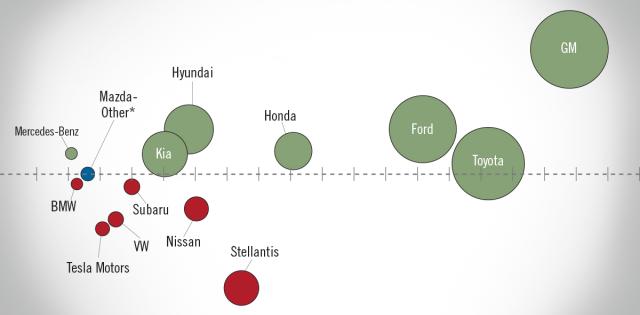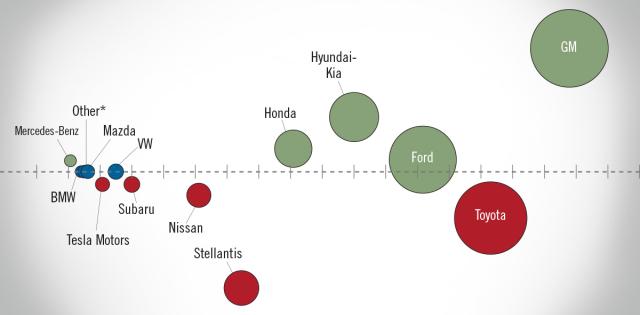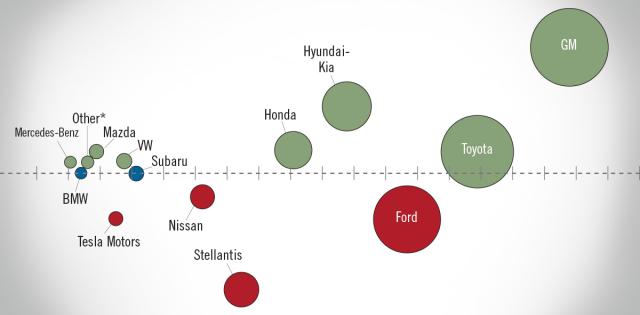Franchised dealers have sold 1,034,592 electric vehicles (EVs) since 2012. Hitting this milestone has franchised dealerships more excited than “EVer” to help customers make the move to electric.
This year (through July) franchised dealerships have sold 227,632 new EVs, an increase of 72% compared to the same period last year. In 2023, franchised dealers have sold 36.4% of all new EVs sold. We expect their share of the EV market to continue to grow as more EV models are introduced.
EV demand increased 350% from 2020 to 2022 according to Consumer Report’s recent analysis.
Franchised dealerships are leading the infrastructure investments needed to keep EVs on the road, including everything from upgraded power lines and transformers to heavier-duty forklifts equipped to service EVs.
Dealers are the frontline of consumer education, training staff across departments so that consumers have the most accurate and complete information about their vehicle.
Franchised dealerships will spend $5.5 billion in EV infrastructure installments, based on a NADA estimation from available data.
Supply chain delays have presented a significant hurdle to manufacturers, dealerships and consumers in EV adoption. However, inventory has ramped up and more EVs are on dealership lots than ever before.
U.S. EV inventory increased from 21,000 units last year to 90,000 units this year, according to Cox Automotive.
Infrastructure remains an obstacle for consumers interested in “going electric.” Consumer hesitancy in EV adoption stems from three main sources:
-
Access to charging: According to the U.S. Department of Energy, the country has 63,8711 public charging stations unevenly distributed across the U.S. Only 14% of those have DC Fast chargers.
-
Affordability: The average price of an electric vehicle last year was $61,488. That is $10,000 more than the overall average for passenger vehicles, according to Kelley Blue Book. Industry experts expect prices to decrease, aided by the rollout of the $7,500 EV tax credit and more models entering the market.
-
Range anxiety: EVs from the 2021 model year averaged a driving range of 234 miles. That average neared 300 miles for 2021 models, but consumers are still comparing EVs against the 400-mile ranges in ICE vehicles.
Read more about:










